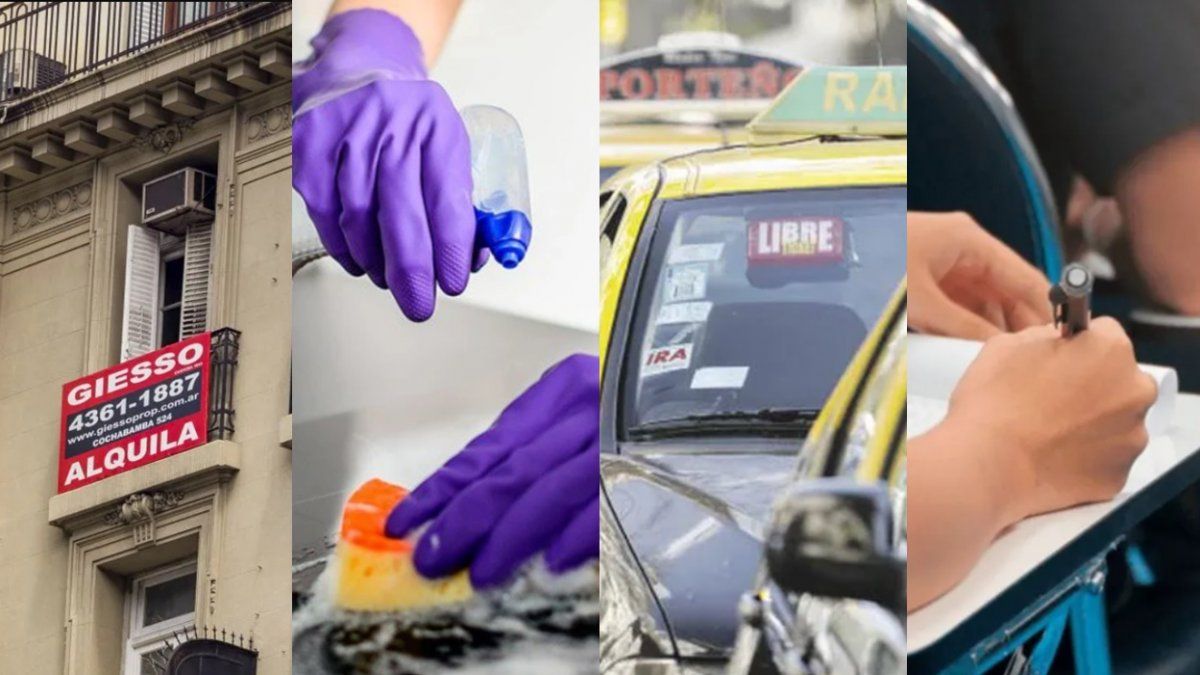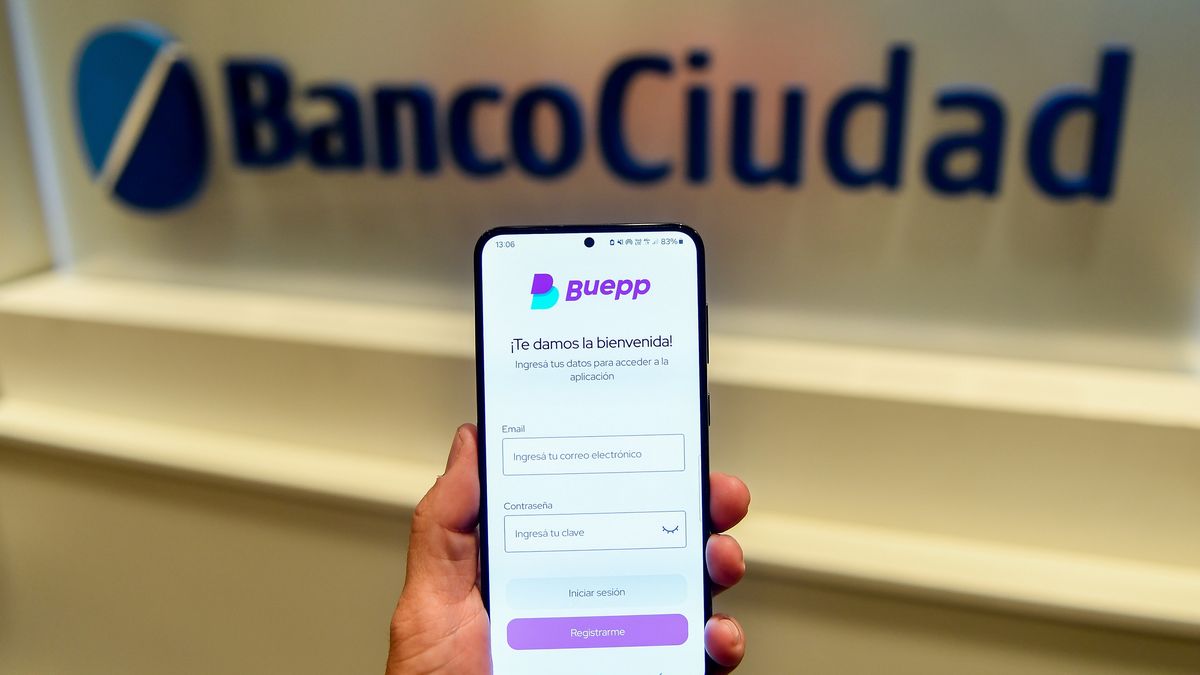The rates of public transport in buses They would go from $270 the minimum, to about $460, 70%.
While in the case of the metropolitan trains, The increase in the minimum rate would rise from $130 to $260, double.
The fare adjustment process for trains and buses, approved in January, included authorization for the cost of the ticket to be is adjusted monthly in accordance with the evolution of inflation in general, but in the last few weeks it was decided postpone the increase that should apply from April for tickets in general and The only thing that will come into effect is the recharge by the unnamed SUBE.
Although starting April 1 the ticket will be more expensive for those who have not completed the procedure, the They can do so at any time after that date.since all official channels will remain in force to nominalize the SUBE card.
For those who already have the SUBE registered, there will be no increases and the same rates will be paid as in February and March.
All social attributes are maintained, that is, both the Social Rate, with discounts of 55% on the ticket value; As the Red SUBE program, which allows travel with discounts of 50% on the second trip and 75% from the third on a maximum of up to 5 transport combinations within a period of two hours.
Domestic workers
Domestic staff will receive15% increase in the month of April corresponding to March salaries. Meanwhile, to know how much the increase will be paid in May, we must wait until April 17 when the meeting meets again. National Commission for Work in Private Homes.
ARBA
The tickets with quota 2 ofl real estate tax from the province of Buenos Aires are arriving with a new surprise for the residents of Buenos Aires: they are adjusted to inflation.
As of the expiration of installment 2, as provided in the Tariff Law 2024, the The amount to be paid is adjusted by a coefficient to keep the tax value updated, an adjustment for the inflation of the period, of which the organization decided to apply only half.
The adjustment for inflation in taxes is something that the Autonomous City of Buenos Aires has already practiced for a few years.
It happens that the adjustment occurs after having revalued the items with increases of up to 200%eliminated in 2024 the benefits for payment on time (10% discount) and for adhering to the electronic ticket or the automatic debit system (another 10%), which made further increase the value of the real estate tax for those who usually complied by paying on time, and now The amounts to be paid come with a 20% surcharge compared to installment 1.
From the Buenos Aires organization, they clarified that the c20% calculation arises from the accumulated inflation of the periodwhich was 40%, but the agency decided that the indexation would be 50% of those 40 points, resulting in 20%.
Prepaid medicine
Private medicine will have sfourth consecutive increase above double digits. It will be between 16 and 19%, according to the company. This increase is added to the 40% in January, 27% in February and 20% in March. This increase since the beginning of the year is above inflation.
Telecommunications
With the closure of the ENACOM delegations, companies are being given free rein to increase their rates. The Government is moving forward with the repeal of the Decree of Necessity and Urgency 690/2020 that declared the internet, telephone and cable television as essential public services. This measure, implemented during the administration of Alberto Fernández, allowed the Government to freeze prices and regulate rate increases, which generated legal controversies with companies in the sector.
The repeal of Decree 690/2020 is in the administrative process and is expected to be published in the coming weeks. However, the Government assures that an increase in the value of these services is not anticipated, since the companies turned to Justice to update their rates due to inflation.
After the intervention of National Communications Entity (ENACOM) for 180 daystelecommunications companies They increased their services by 14% during January on average and just over 29% in February, depending on the service and the operator. This last increase was reflected in last month’s Consumer Price Index (CPI) since Communication was the item that increased the most with 24.7%. In January, it had increased 25.1% monthly. For this month Another increase of up to 20% is expected.
Fuels
Gasoline prices will increase 5% on its price from this Mondaywith a cost of around $840 for the superand long lines at service stations are expected for the weekend.
The increase in gasoline has its origin in a new increase in the liquid fuel tax (ICL) that the refining companies -YPF, Shell, Axion and Puma Energy- will pass on to the price of fuel.
Although each of the oil companies independently determines the increase, normally the increases are based on what the state-owned YPF decides.
According to the Surtidores website, a value for lSuper gasoline today at YPF is $800 in the City of Buenos Airesso a 5% increase would bring that value to $840.
For Premium gasoline, the values would go from the $990 that it currently costs to the $1,040 that it would cost from Monday. Meanwhile, diesel would cost $885 compared to the $843 it costs today.
gasoline-fuels.jpg
For Premium gasoline, the values would go from the $990 that it currently costs to the $1,040 that it would cost from Monday.
Gas rates
The Government defined the increase in gas from andOn Monday, April 1st, with the removal of subsidies from the wholesale price of fuel, which will hit high-income households, businesses and industries hard.
The figures would be above 300% and will be divided into three sections.
This adjustment was already published in the Official Gazette within the framework of the new tariff table for users of natural gas by network.
The Ministry of Energy clarified that the new wholesale values in PIST were established by removes subsidies and will impact the ballots, because the price of gas is one of the components of the final rate. To this we must add the transportation and distribution components, so the final impact on the ballots will be even greater.
The adjustment will its first update in April; the second between May and September and the third from October to December.
In addition, it was indicated that the increases will be applied to residential users and the so-called “general service.”
High-income households (called N1) will have an increase of 179%, from $33.09 to $92.33 per cubic meter in Buenos Aires. For non-residential users, the update is 612%. Meanwhile, low-income N2 households will see a 154% jump.
Water rates
The AySA state company demanded an increase of up to 209% in water and sewer rates since April, for the users of the Buenos Aires Metropolitan Area (AMBA).
With an increase in these proportions, the average value of the ticket – without taxes – would go from $5,290 to $16,300 starting next month.
The company made its request within the framework of the virtual public hearing convened by the Ministry of Public Works.
If AySA’s request is fulfilled, users in the high, medium and low zonal levels would pay the following rates:
– High zone: from $6,236 in March to $19,269 in April.
–Middle zone: from $5,663 to $17,500 in April.
– Low zone: from $4,551 in March to $14,062 in April.
Meanwhile, for more than 300,000 non-residential users -such as businesses and industries- the average water and sewer rates would go from $23,102 in March to $71,386 in April, always without taxes.
If you only have water service, it would rise to $43,002, the company detailed.
At the same time, it proposed a mechanism for monthly updating of rates based on the evolution of salaries and inflation.
Rentals
All housing rentals that have started between July 2020 and October 17, 2023 and are governed by law 27,551, they have a single annual adjustment determined by an official index. If the contract was signed in the month of April, the adjustment must be applied, which will be 197.7%.
Private schools
On the last business day of March, the authorities signed the resolutions that enable average increases of 9% in the City and 4.7% in the Province for subsidized private educational institutes in those jurisdictions.
Tolls
In April, tolls on national routes and some accesses to the City of Buenos Aires will increase by 200%. With the update, the minimum peak hour fare for cars will be $900.
The increase will be applied once the administrative process of citizen consultation is completed, which began on March 19 and will close on April 17. The increase is for sections I to Riccheri–Ezeiza–Cañuelas Highway), La Pampa, Santa Fe, Córdoba, San Luis, Mendoza, Corrientes, Chaco, Misiones, Santiago del Estero, Tucumán, Salta and Jujuy.
Source: Ambito




